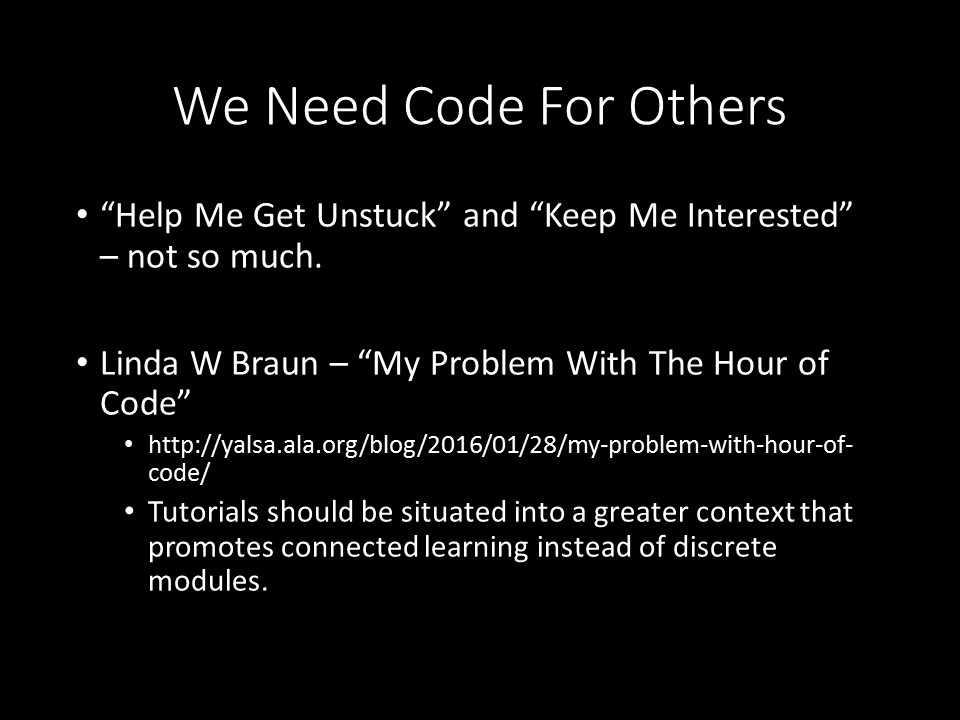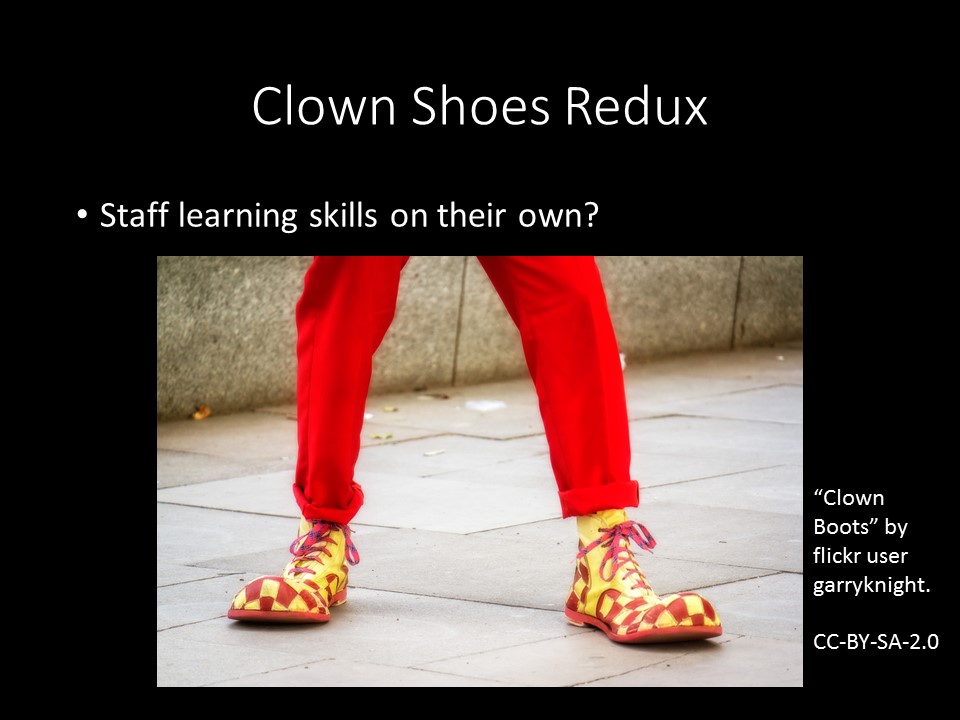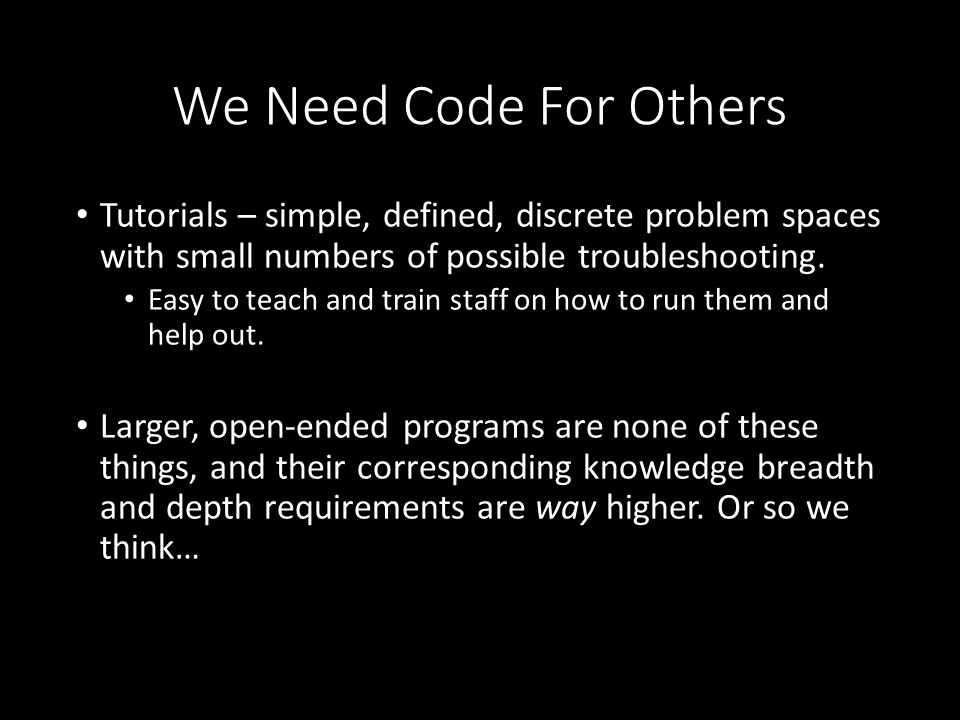
A major sticking point happens at the shift from "Get me Started" to "Help Me Solve Problems" and "Keep Me Interested". When working with robot programming interfaces, Hour of Code, and other tutorial exercises, the domain of required knowledge is small enough that people who may not have much experience working with code can still be reasonably expert enough to handle most problems and troubleshooting questions within the boundaries of their program or tutorial. Linda W. Braun details the ways that a single tutorial experience like the Hour of Code is insufficient for synthesis, suggesting that programs like Hour of code need to re-seat themselves in a bigger picture that gives their attendees practical experience toward solving problems, meeting educational objectives, or accomplishing self-directed tasks, instead of teaching them that code acquisition is much like other subject learning in schools - learn enough to pass the test and not much else. To achieve this, though, the people putting on the class need more expertise than they currently have.
Clown Shoes Redux


As we saw above, for people who aren't sufficiently privileged to be able to learn and contribute to code projects in their spare time and can't manage to convince anyone that learning code is worth devoting clock time to, either in a junior developer position or as part of a formal agreement with their workplace. No, Learning time that consists of a single hour a week doesn't cut it. We're talking something closer to the 80/20 split that is supposedly Google's way of keeping people interested, as well as the ability to have blocks of uninterrupted time away from public service so as to be able to dig into meaty projects and have mentorship activities, or attend conferences, hack jams, and do things that advance the skill sets needed to then be able to come back and help others solve their problems and go farther. If that's not possible, then the public library has to rely on their community of experts and developers to be willing to volunteer time to mentor, either the staff or the other people, or to be available at certain days and times to help people with their projects. This can mean setting up hack jam times with the library, or announcing and advertising your availability, whether or in person or by a virtual method, in the Maker Space for people to come with questions and inquiries. If those are the ways you want to help, do talk with the staff first. You'll find that many of us will be very happy to assist and promote you and feed you as many people with questions and projects as you want to take.
If there's not a big community, or understandably, not a whole lot of interest in doing for free what one might do for pay, then we're back to figuring out how to do it yourself (Clown Shoes!) or we need better teaching tools. With children of sufficient age, tweens, teens, and adults, it's possible to engage in one-day intensives, or to start thinking about putting together series programming where sessions build on the previous sessions' knowledge. This is a better idea that helps to hit the "Help Me Solve Problems" and "Keep Me Interested" parts of experience that builds actual expertise and, incidentally, helps cement the value of the public library to groups that traditionally don't use it.